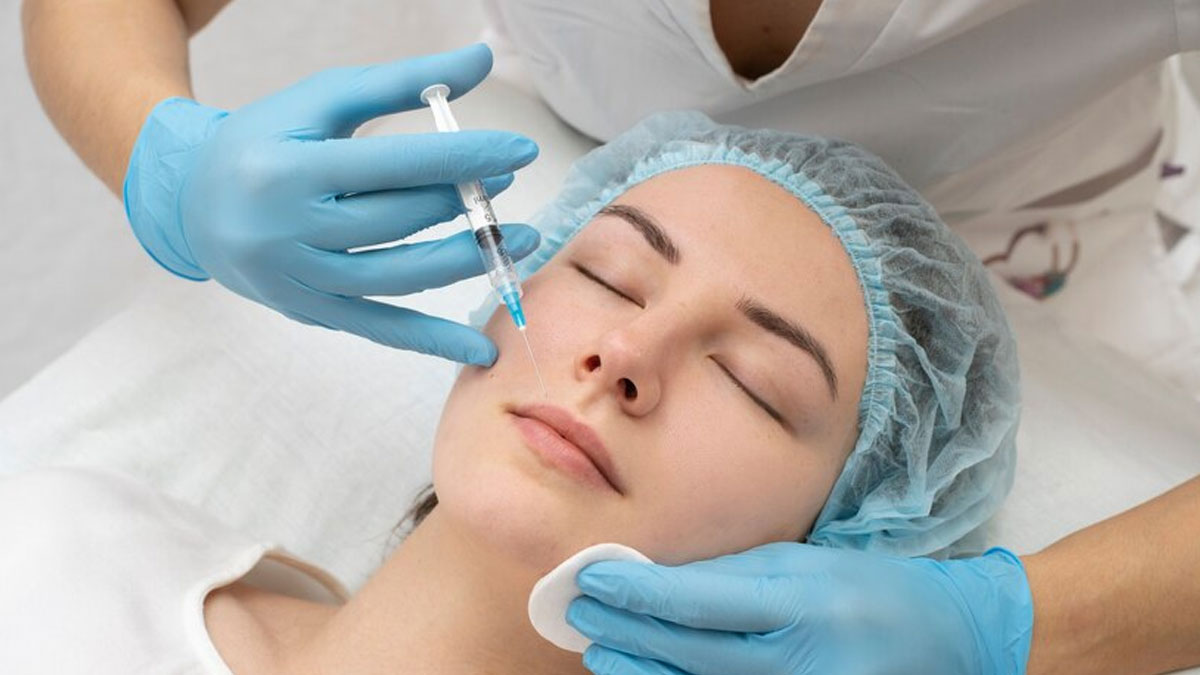
In the ever-evolving world of skincare and dermatological treatments, developments are happening rapidly and new trends are taking over the market. Recently, injectable moisturisers have become the latest trend in the skincare world, promising deep hydration and a radiant complexion. These treatments, often marketed as "skin boosters", involve injecting hyaluronic acid or other hydrating substances directly into the skin. Unlike traditional moisturisers that sit on the surface, injectable moisturisers aim to rejuvenate the skin from within, claiming to provide long-lasting moisture, improve skin texture, and reduce the appearance of fine lines and wrinkles. But do they live up to the hype?
While proponents of injectable moisturisers tout their immediate and noticeable benefits, sceptics argue that the results may not be as dramatic or long-lasting as advertised. The effectiveness of these treatments can vary based on factors such as skin type, the specific product used, and the skill of the practitioner. Additionally, there are concerns about potential side effects and the cost of maintaining the results. This article delves into the science behind injectable moisturisers, examines expert opinions, and considers user experiences to determine whether they truly deliver on their promises.
A few studies have shown significant improvement in facial skin quality in terms of brightness, texture, radiance, and firmness, after the use of injectable moisturisers, while some showed no significant clinical or histologic changes in facial skin quality.
To understand the use and effectiveness of injectable moisturisers in detail, OnlyMyHealth interacted with Dr Gitika Sanodia Biyani, Consultant Dermatologist and Trichologist at Dr LH Hiranandani Hospital, Powai, Mumbai.
The Popularity

The use of injectable moisturisers is now becoming popular and though they could have a measure of validity, one needs to temper expectations. Dr Biyani said, “They are not a one-stop-solution for hydration. About these products, I see many patients who are interested in them and I think it is important to know how it works and how they differ from the moisturisers with which we are familiar.”
Also read: DIY Ghee Moisturiser: How Does Ghee Benefit Your Skin
How Do Injectable Moisturisers Work
Dr Biyani said, “Firstly, injectable moisturisers do not act as a substitute or a topical moisturiser. They contribute hyaluronic acid, a molecule that attracts water in the skin, into the deeper skin layers.” This can help to give the skin a fuller look and is properly hydrated but the hydration does not come in the same manner as having a good moisturiser on the surface. This is like providing hydration for the skin from the inside while topical applications are like wearing an outer garment such as an umbrella to shield from rain.

Who Can Benefit?
When asked this, “These are products that are used by people with very dry skin or people who want to make further improvement of the skin. It can also be used as an advantage over other treatments in cases where the use of topical creams is causing the skin to become sensitive.” Adding, she said, “However, the results are not permanent and multiple sessions are needed for the best outcome, moreover this may be quite expensive.”
Also read: Skincare: How To Choose Moisturiser For Your Face
Conclusion
As for injectable moisturisers, we can assess the feasibility and suitability of such a procedure during a consultation. As strategic professionals, it is also possible to create an intricate skincare regime, both topical and injectable, in case the client would like to reach optimal results for overall skin health and hydration.
Also watch this video
How we keep this article up to date:
We work with experts and keep a close eye on the latest in health and wellness. Whenever there is a new research or helpful information, we update our articles with accurate and useful advice.
Current Version
